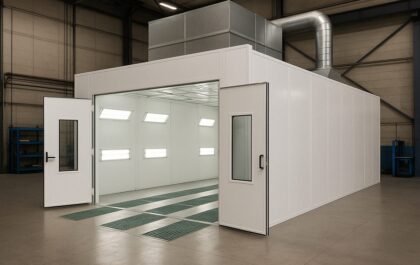A CRM is a powerful tool for managing and nurturing customer relationships, tracking sales, and automating various business processes. Effectively managing leads, scheduling jobs, and monitoring customer interactions help you increase profit. Here’s why a CRM is indispensable for roofing companies:
Efficient lead management
Leads are the lifeblood of any roofing business. A CRM helps you effectively manage and nurture leads, ensuring no potential customer falls through the cracks. With a CRM, you organize and prioritize leads based on various criteria, such as the type of job, location, or urgency.
Streamlined sales process
The sales process in roofing is complex and time-consuming. A Roofing CRM simplifies this process by providing a centralized platform to manage sales pipelines, track progress, and automate various sales activities. You easily create and manage sales opportunities, set follow-up reminders, and generate quotes and proposals, all within the CRM. It saves time and ensures a more organized and professional approach to sales.
Improved job scheduling and management
Efficient job scheduling and management are critical for roofing businesses, especially as you grow. A CRM automates your workflow by allowing you to assign tasks to team members, track job progress, and manage job schedules. The customer will remain satisfied, and job completion will be on schedule if you provide real-time updates and notifications.
CRM features for roofing
Now that we’ve established the importance of a CRM for roofing businesses, let’s explore the key features you should consider when choosing a CRM for your specific needs:
- Integration with roofing-specific tools – A good CRM should integrate seamlessly with other tools and software you may already use. For example, if you use estimating software or project management tools, ensure that your CRM integrates with these platforms to provide a holistic view of your business operations. The integration streamlines your workflow, reduces data entry, and ensures that your team works with accurate and current information.
- Customizable sales pipelines – Every roofing business has its unique sales process, and a CRM should be flexible enough to accommodate your specific needs. Look for a CRM with customizable sales pipelines that allow you to create stages and steps that align with your sales process. This ensures that your team easily tracks and manages sales opportunities, providing a consistent and efficient sales approach.
- Automated workflows and notifications – Automation is a powerful feature of any CRM, significantly streamlining your roofing business’s operations. Look for a CRM with automated workflows that trigger actions based on specific events or criteria. For example, you set up automated notifications to remind your team of upcoming jobs, send follow-up emails to customers after completing a job, or even generate quotes and proposals automatically based on predefined templates.
- Comprehensive reporting and analytics – A CRM should provide valuable insights to help you make informed business decisions. Look for a platform with robust reporting capabilities that allow you to generate custom reports and visualize data in various formats. Tracking your roofing business’s performance, identifying trends, and making data-driven decisions are necessary for improving your company’s efficiency.
If your roofing business is to succeed, choosing the right CRM will be a critical decision. With the right roofer software, you streamline your operations, enhance customer relationships, and drive your business forward.



